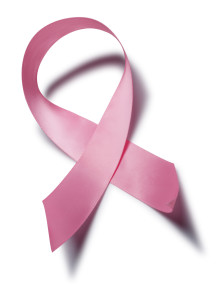Every October, we like to write a post about the relationship between breast cancer and drinking. As many of us know, October is Breast Cancer Awareness Month and women’s health is on the forefront of our minds. But for many women, breast cancer isn’t just on their minds in October. And we’re here to remind you that every month is a good time to think about the negative consequences that alcohol can have on the overall health of a woman.
With breast cancer and drinking, research is consistently showing that all alcoholic beverages (beer, liquor, and even wine) increase a woman’s risk of hormone-receptor-positive breast cancer. This is because alcohol can increase the levels of estrogen and other hormones associated with hormone-receptor-positive breast cancer. Alcohol might also increase risk because it damages DNA in cells which can contribute to the development of cancer.
Let’s break down some of the numbers: women who have three drinks a week have a 15% greater risk than women who don’t drink. And researchers estimate that the risk goes up another 10% for each additional drink that women have regularly. And we aren’t just concerned about women, teen and tweens (ages 9-15) who have 3-5 drinks per week have three times the risk of developing benign breast lumps (and some of these lumps are associated with higher risks of developming breast cancer later in life). A 2009 study found women in remission, who had been diagnosed with early stages of the disease, significantly increased their risk of the disease returning by consuming even a few drinks a week (3-5).
So, what can you do about this unhealthy relationship between breast cancer and drinking? First, take a look at what you are doing to improve your overall health. Are you exercising, eating well, and doing activities that reduce stress. This is all important in disease prevention. Second, find ways to avoid alcohol. If not always, then a considerable about of time. This is especially true if you have other risk factors for breast cancer. For example, try out some new mocktail recipes at your next party or during the holidays. Or find new friends or encourage the old ones to skip the happy hour and start running together or doing a creative activity together that doesn’t involve alcohol but is a great way to still socialize. Finally, talk to that younger woman in your life about the health risks involved in drinking at an early age.


